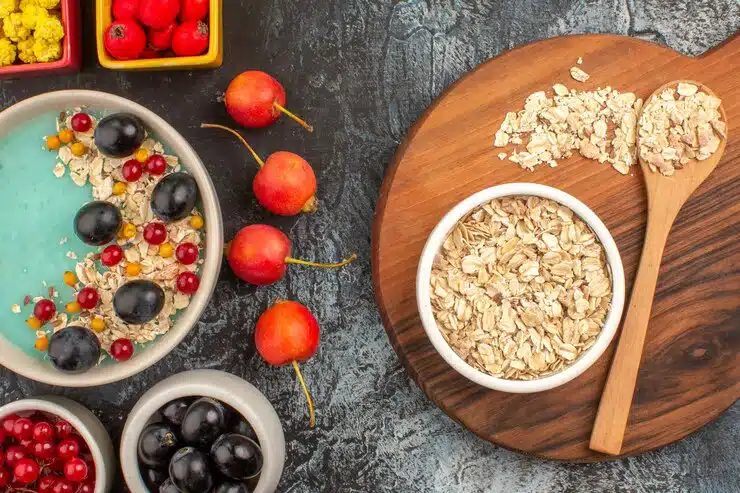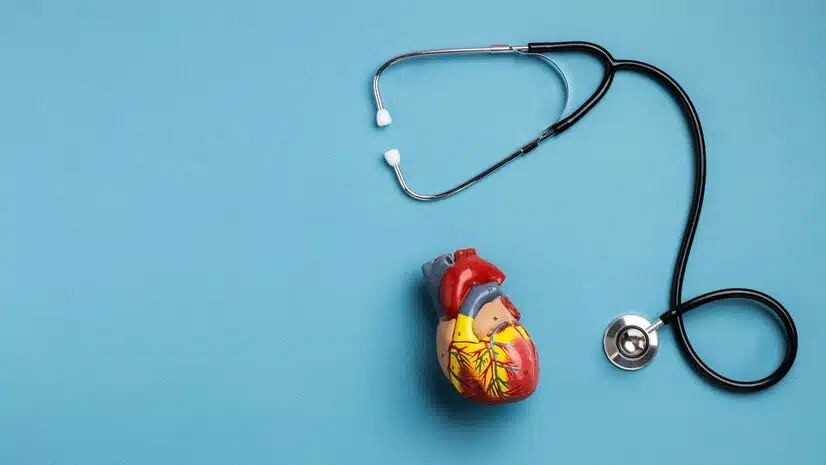High cholesterol levels can increase your risk of heart disease and other serious health issues. Fortunately, there are many natural ways to lower your cholesterol levels without relying on medication. In this article, we’ll explore ten simple strategies that can help you maintain healthy cholesterol levels and improve your overall well-being.
1. Eat a Heart-Healthy Diet
One of the most effective ways to lower cholesterol naturally is by adopting a heart-healthy diet. This means reducing your intake of saturated and trans fats, which are found in foods like red meat, full-fat dairy products, and processed snacks. Instead, focus on incorporating more fruits, vegetables, whole grains, and lean proteins into your meals. These foods are rich in fiber, antioxidants, and other nutrients that can help lower cholesterol levels and protect your heart.
2. Increase Your Fiber Intake

Fiber is essential for lowering cholesterol levels because it helps remove cholesterol from the body. Aim to include plenty of fiber-rich foods in your diet, such as fruits, vegetables, whole grains, beans, and legumes. Oatmeal, barley, and bran are particularly high in soluble fiber, which can help reduce LDL, or “bad” cholesterol levels. Try to consume at least 25-30 grams of fiber per day to reap the cholesterol-lowering benefits.
3. Choose Healthy Fats
Not all fats are created equal, and choosing the right types of fats can have a positive impact on your cholesterol levels. Opt for healthy fats found in foods like avocados, nuts, seeds, and olive oil. These fats are rich in monounsaturated and polyunsaturated fats, which can help raise HDL, or “good” cholesterol levels and lower LDL cholesterol levels. However, it’s important to consume these fats in moderation, as they are still calorie-dense.
4. Limit Sugar and Refined Carbohydrates
Consuming too much sugar and refined carbohydrates can contribute to high cholesterol levels and other health problems. These foods can cause spikes in blood sugar levels, which may lead to an increase in LDL cholesterol and triglycerides. To lower your cholesterol naturally, try to limit your intake of sugary snacks, sodas, white bread, pasta, and pastries. Instead, choose whole grains, fruits, and vegetables, which are lower in sugar and higher in fiber.
5. Get Regular Exercise

Physical activity is essential for maintaining healthy cholesterol levels and overall cardiovascular health. Aim for at least 150 minutes of moderate-intensity exercise or 75 minutes of vigorous exercise per week. Activities like brisk walking, jogging, cycling, swimming, and dancing are great options for improving cholesterol levels and reducing your risk of heart disease. Regular exercise can also help increase HDL cholesterol levels while lowering LDL cholesterol and triglycerides.
6. Maintain a Healthy Weight
Being overweight or obese can increase your risk of high cholesterol levels and other health problems. Losing excess weight through a combination of healthy eating and regular exercise can help improve cholesterol levels and reduce your risk of heart disease. Aim for a healthy weight by following a balanced diet and staying physically active. Even a modest weight loss of 5-10% can have a significant impact on cholesterol levels and overall health.
7. Quit Smoking
Smoking is a major risk factor for heart disease and can contribute to high cholesterol levels. Quitting smoking can improve your cholesterol levels and significantly reduce your risk of heart disease and other serious health conditions. If you need help quitting, talk to your doctor about strategies and resources that can help you quit smoking for good.
8. Limit Alcohol Consumption

While moderate alcohol consumption may have some cardiovascular benefits, excessive drinking can raise cholesterol levels and increase your risk of heart disease. To lower your cholesterol naturally, limit your alcohol intake to no more than one drink per day for women and two drinks per day for men. If you don’t drink alcohol, there’s no need to start for the sake of your cholesterol levels.
9. Manage Stress
Chronic stress can contribute to high cholesterol levels and other health problems. Finding healthy ways to manage stress, such as practicing relaxation techniques, exercising, spending time with loved ones, and pursuing hobbies, can help lower cholesterol levels and improve overall well-being. Incorporate stress-reducing activities into your daily routine to promote heart health and lower your risk of heart disease.
10. Consider Supplements
In addition to making lifestyle changes, certain supplements may help lower cholesterol levels naturally. Plant sterols and stanols, omega-3 fatty acids, and soluble fiber supplements have been shown to have cholesterol-lowering effects. However, it’s important to talk to your doctor before taking any supplements, as they may interact with medications or have side effects.
Conclusion
Lowering cholesterol levels naturally is essential for maintaining heart health and reducing your risk of heart disease. By adopting a heart-healthy diet, increasing your fiber intake, choosing healthy fats, getting regular exercise, maintaining a healthy weight, quitting smoking, limiting alcohol consumption, managing stress, and considering supplements, you can effectively lower your cholesterol levels and improve your overall well-being. Talk to your doctor for personalized recommendations and guidance on lowering your cholesterol naturally.
Also Refer : Top 10 Exercises For A Stronger, Pain-Free Lower Back
FAQs
What foods can help lower cholesterol levels?
Foods rich in soluble fiber like oats, beans, fruits, and vegetables can help lower cholesterol levels. Additionally, incorporating healthy fats from sources like avocados, nuts, seeds, and olive oil can also be beneficial.
How much exercise do I need to lower cholesterol levels?
Aim for at least 150 minutes of moderate-intensity exercise or 75 minutes of vigorous exercise per week to help lower cholesterol levels. Activities like brisk walking, jogging, cycling, swimming, and dancing are excellent choices.
Can losing weight help lower cholesterol levels?
Yes, losing excess weight through a combination of healthy eating and regular exercise can help improve cholesterol levels. Even a modest weight loss of 5-10% can have a significant impact on cholesterol levels and overall health.
Are there supplements that can help lower cholesterol naturally?
Certain supplements like plant sterols and stanols, omega-3 fatty acids, and soluble fiber supplements have been shown to have cholesterol-lowering effects. However, it’s important to consult with a doctor before taking any supplements to ensure they are safe and appropriate for you.
How can I manage stress to help lower cholesterol levels?
Managing stress through techniques like deep breathing, meditation, yoga, exercise, spending time with loved ones, and pursuing hobbies can help lower cholesterol levels. Chronic stress can contribute to high cholesterol levels, so finding healthy ways to manage stress is important for overall well-being.
Image Source : Freepik





